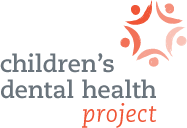The Children's Dental Health Project's blog
Medicaid case underscores the vital nature of oral health coverage
 UPDATE: On March 27, a federal judge struck down Medicaid work rules at issue in the cases described below. CDHP will follow the impact of this ruling as details continue to emerge.
UPDATE: On March 27, a federal judge struck down Medicaid work rules at issue in the cases described below. CDHP will follow the impact of this ruling as details continue to emerge.
A federal judge is expected to rule this week on two cases challenging state Medicaid waivers that put families’ access to health care at risk. As the Children’s Dental Health Project (CDHP) has previously highlighted, both Arkansas and Kentucky have pursued federal permission to impose eligibility and service restrictions, including burdensome work and reporting requirements, on low-wage adults enrolled in the program. Both states’ Section 1115 Medicaid projects were approved by the Centers for Medicare & Medicaid Services (CMS), with harmful consequences. Since last June, when Arkansas’ waiver took effect, 18,000 people have lost coverage. Kentucky proposed a similar project that was approved by CMS in 2018. It was struck down in court but subsequently re-approved by CMS despite overwhelming public opposition. Both projects have faced legal challenges, up to the oral arguments that were heard in federal court in mid-March.
The National Health Law Program has been at the forefront of these legal battles. Arkansas’ Medicaid waiver requires people enrolled in the program to prove that they have done at least 80 hours of work or community engagement activities each month, or face losing coverage. Kentucky’s waiver imposes similar work rules. In both states, people are locked out of coverage if they do not work enough or comply with the reporting requirements associated with the restriction.
Kentucky’s Medicaid waiver would force people to earn points to access oral health services. Rather than place care out of reach, policymakers should recognize that oral health is an essential component of overall well-being.
Representing families in both states whose coverage was dropped or is threatened under such restrictions, National Health Law Program and its partners argue that the approvals run counter to the Medicaid’s purpose, which is to furnish medical assistance to low-income people. In fact, this was one of the key reasons that Kentucky’s waiver was blocked by Judge James Boasberg in June 2018. CDHP and its partners submitted comments to CMS, echoing this concern and highlighting the potential harm that these barriers to coverage and care present for children and families.
The Medicaid restrictions in Arkansas and Kentucky are representative of a broader push by CMS, encouraging states to erect hurdles to coverage for low-wage adults, including parents. The agency has continued to approve similar state Medicaid waivers, as in New Hampshire. (Low-wage residents there are challenging it in court, also with National Health Law Program and partners’ representation.) Moreover, without waiting for any results from the demonstration projects already approved, the President’s budget proposes to mandate similar work requirements in every single state. Ongoing, active federal backing of Medicaid restrictions is striking due, in part, to the extreme coverage losses in Arkansas. But it is also alarming as Arkansas lacks measures to evaluate their waiver. Federal support for their new policies despite this absence was criticized by the Medicaid and CHIP Payment and Access Commission, a nonpartisan advisor to federal and state policymakers.
In both states, coverage losses would jeopardize access to dental care for adults. Oral health care has actually been center stage in the debate over Kentucky’s Medicaid waiver. In addition to imposing work requirements and limits that would lock people out of coverage, the state’s plan downplays the vital importance of oral health. For struggling adults who gained coverage under Kentucky’s Medicaid expansion, the waiver puts dental benefits on par with a trivial limited gym membership. Making dental care difficult to obtain, it would force people to earn points to access oral health services. Rather than place care out of reach, policymakers should recognize that oral health is an essential component of overall well-being.
Kentucky’s positioning of oral health care as supplementary was underscored during last week’s oral arguments. The lawyer representing the Trump administration highlighted dental benefits as coverage the state would be able to provide with money saved by implementing the waiver. However, these savings would likely be achieved as a result of fewer people being enrolled in Medicaid — a proposition that National Health Law Program rightly characterized as untenable. Moreover, making dental coverage difficult to access overlooks key evidence that poor oral health can harm a person’s ability to work or find a job. This is ironic given the state’s justification for the waiver itself.
Harmful Medicaid waivers are likely to result in fewer parents accessing the oral health care they need, which has negative consequences for the entire family.
The Trump administration and state officials seeking Medicaid work rules have argued they are aimed at helping people find jobs. But the evidence is clear that losing health coverage is an impediment both to employment and to good health. This is especially true when it comes to oral health coverage, as noted in CDHP’s fact sheet on family oral health. Access to oral health care can help people secure a job. Good oral health is also linked to higher earnings over time, particularly for women. That’s key to family economic stability. Unfortunately, harmful Medicaid waivers are likely to result in fewer parents accessing the oral health care they need, which has negative consequences for the entire family.
Tens of millions of people rely on Medicaid to access essential health and dental care. With support to stay healthy, this key program also helps lift families out of poverty and puts them on a path to success. While we have much work to do to ensure that Medicaid meets the needs of every person it covers, we strongly oppose any policy changes that would put good oral health further out of reach for anyone. As such, we hope that the court will rule in favor of health and equity. A ruling should further serve as a reminder that the purpose of Medicaid is to improve the health and well-being of the most vulnerable among us.
